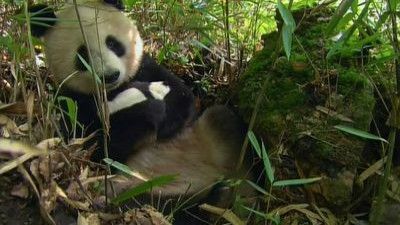Planet Earth: The Future
Saving the Species (1x1)
: 26, 2006
The first program asks if there really is an extinction crisis facing certain species. Alastair Fothergill, executive producer of Planet Earth, admits that making the series was a bittersweet experience since some creatures were filmed with the knowledge that their continued existence is under threat. David Attenborough believes that conservation of the natural world is something that can unite humanity if people know enough about it. Cameraman Martyn Colbeck relates that every single day during a six-week African visit to film for "Jungles", he and his crew were awakened by the sound of gunshots. Poaching can quickly wipe out a population, and David Greer of the World Wide Fund for Nature explains that in 2005 his team confiscated 70 guns in the area — a 700% increase from 1999. Other featured animals at risk include the Walia Ibex, the Snow Leopard, the boto, and saiga Antelope. The attack of a polar bear on a walrus colony on dry land in "Ice Worlds" was a rare occurrence. Footage from a 1997 BBC Wildlife Special shows the bears hunting smaller prey on frozen ice. Species have always become extinct, but now, the viewer is told, the rate of extinction is accelerating and it will "really reach biblical proportions within a few decades." Mankind is urged to respect biodiversity: it is estimated that if a monetary value could be put on all that the world's ecosystems do for humanity, it would total some US$30 trillion.
